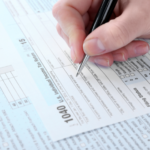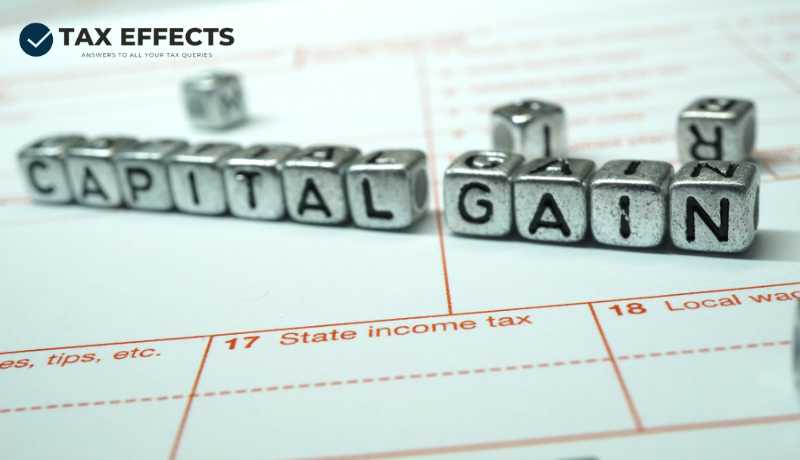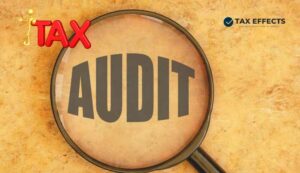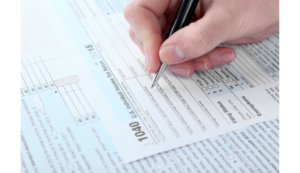In this article, we will discuss about Section 54, 54EC & 54F of Capital Gain Tax Exemption.
Section 54, 54EC, 54F: Capital Gain Tax Exemption
Capital Gains Exemption can be claimed under the Income Tax Act by reinvesting the amount in either purchasing/ constructing a Residential House or by reinvesting the amount in Capital Gain Bonds. Seller of the asset either has the option to claim exemption or pay 20% Long Term Capital Gains (LTCG) Tax.
Following exemptions can be claimed on the sale of a Long-Term Capital Asset i.e. on sale of an asset which was held for more than 2 years:
- Section 54: Asset Sold – Residential Property, New Asset Purchase – Residential Property
- Section 54EC: Asset Sold – Any Asset, New Asset Purchase – Specified Bonds
- Section 54F: Asset Sold – Any Asset, New Asset Purchase – Residential House
Section 54: (Asset Sold – Residential Property, New Asset Purchase – Residential Property)
Under this section – Any LTCG arising to an Individual or HUF, from the Sale of a Residential Property (whether Self-Occupied or on Rented) shall be exempt to the extent such capital gains is invested in the following manner:
- Purchase of another Residential Property within 1 year before or 2 years after the transfer of the Property sold and/or
- Construction of Residential house Property within a period of 3 years from the date of transfer/sale of property.
Note –
1 Provided that the New Residential House Property purchased or constructed is not transferred within a period of 3 years from the date of acquisition. If the new property is sold within a period of 3 years from the date of its acquisition.
2. Then, for the purpose of computing the capital gains on this transfer, the cost of acquisition of this house property shall be reduced by the amount of capital gain exempt under section 54 earlier.
3. The capital gain arising from this transfer will always be a short term capital gain (STCG).
Quantum of Deduction under Section 54
Capital Gains shall be exempt to the extent it is invested in the purchase and/or construction of another house.
- If the Capital Gains amount is equal to or less than the cost of the new house, then the entire capital gain shall be exempt.
- If the amount of Capital Gain is greater than the cost of the new house, then the cost of the new house shall be allowed as an exemption
Number of Houses that can be purchased for claiming Section 54 Exemption:
- Capital Gains Exemption is allowed only if the Capital Gains exemption is invested in construction/purchase of 1 residential house, irrespective of the no. of houses already owned by the person, if he invests the capital gain in construction/purchase of a single residential house – then capital gains exemption can be claimed.
- An exception to the above rule, in cases where the amount of Capital Gains does not exceed Rs. 2 Crores, the capital gains exemption would be allowed even if the investment is made in purchase/construction of 2 residential houses. However, this exemption of purchasing 2 residential houses can be claimed only once. This exemption once claimed cannot be claimed in again in any other year. For all other years, investment should be made in construction/ purchase of 1 residential house only.
Capital Gains Account Scheme
- In Section 54, the assessee is given 2 years to purchase the house property or 3 years for the construction of the house property, but the capital gains on the transfer of the original house property is taxable in the year in which it was sold. The Income Tax Return of that year is required to be submitted in the relevant assessment year on or before the specified due date for filing the Income Tax Return. Hence, assessee will have to take a decision for the purchase/construction of the house property till the date of furnishing of the income tax return otherwise, the capital gain would become taxable.
- To avoid the above situation, the Income Tax Act specifies an alternative in the form of deposit under the Capital Gains Account Scheme (CGAS).
- The amount of Capital Gain which is not utilized by the assessee for the purchase or construction of the new house before the date of furnishing of the Income Tax Return should be deposited by him under the CGAS, before the due date of furnishing of ROI.
- The details of deposit i.e. the Date of Deposit & amount deposited are required to be mentioned in the Income Tax Return while claiming the Capital Gains Exemption. In this case, the amount already utilized by the assessee for the purchase/construction of the new house shall be eligible for exemption.
- In case, the assessee deposits the amount in the CGAS but does not utilized the amount deposited for the purchase or construction of a residential house within the specified period, the amount not so utilized shall be charged as Capital Gains of the year in which the period of 3 years is completed from the date of sale of the Original Asset & it will be LTCG of that financial year.
Other Important Points
- Allotment of a flat by DDA under the Self-Financing Scheme shall be treated as construction of the house. Similarly, allotment of a flat or a house by a co-operative society, of which the assessee is the member, is also treated as construction of the house.
- The assessee shall be entitled to claim exemption in respect of capital gains even though the construction is not completed within the statutory time limit.
- Where the assessee made substantial payment within the prescribed time limit & acquired substantial domain over the property, although the builder failed to hand over the possession within the stipulated period, exemption u/s 54 is allowed.
- House Property does not mean a complete Independent House. It includes residential units also, like flats in a multi-storeyed complex.
- Where a property is owned by more than one person & the other co-owner or co-owners release his or their share respective share or interest in the property in favor of one of the co-owners, it will be deemed that the property has been purchased by the release. Such release also fulfils the condition of Section 54 as to purchase.
- The unutilized deposit amount in the CGAS in the case of an individual who dies before the expiry of the 2/3 years stipulated period under section 54 cannot be taxed in the hands of the deceased. This amount is not taxable in the hands of the legal heirs also as the unutilized portion of the deposit does not partake the character of income in their hands but is only a part of the estate.
Section 54EC: Investment of Capital Gain Amount in Long Term Specified Bonds issued by NHAI or REC
- Capital Gains arising from the transfer of any long-term capital asset are exempt under section 54EC if the assessee has within a period of 6 months after the date of such transfer invested the capital gain in long term specified bonds as notified by the Govt. for a minimum period of 5 years.
- In case where the long term specified asset is transferred or converted into money at any time within a period of 5 years from the date of its acquisition, the amount of capital gain exempt u/s 54EC, shall be deemed to be LTCG of the previous year in which the long term specified asset is transferred or converted into money.
- If the assessee even takes a loan or advance on the security of such long term specified asset, he shall be deemed to have converted such long term specified asset into money on the date on which such loan or advance is taken.
- These specified bonds are usually issued by REC and NHAI and the Interest Rate offered is approx. 5.25%. These are Capital Gain Bonds and not Tax-Free Bonds. The principal invested becomes tax free after the lock-in period but the interest continues to remain taxable. Interest earned is not tax-free & is added to income under the head other sources.
- Benefit of Section 54EC would only be available on sale of Land or Building (whether Residential or Non-Residential). Earlier it was available for all assets but now it would only be applicable for Land or Building.
Quantum of Deduction under Section 54EC
- Capital Gains shall be exempt to the extent it is invested in the long term specified assets subject to a maximum limit of Rs. 50 Lakhs within a period of 6 Months from the date of such transfer.
- The investment made by an assessee in the long term specified asset, out of capital gains arising from the transfer of one or more original asset or assets are transferred & in the subsequent financial year does not exceed Rs. 50 Lakhs.
Section 54F: (Asset Sold – Any Asset, New Asset Purchase – Residential House)
Any Gain arising to an individual or HUF from the sale of any Long-Term Asset other than Residential Property shall be exempt in full, if the entire net sales consideration is invested in-
- Purchase of one residential house within 1 year before or 2 years after the date of transfer of such an asset or in
- Construction of 1 residential house within 3 years after the date of such transferNote – In case the whole sale consideration is not invested & only a part of the sale consideration is invested, exemption shall be allowed proportionately = Amount Exempt = Capital Gain X Amount Invested/Net Sale Consideration.
- Assessee also has the option of depositing this amount in Capital Gains Account Scheme as explained in Section 54 above, before the due date of furnishing the Income Tax Return.
Exemption under Section 54F not available in following cases
Exemption u/s 54F would not be available if any of the below mentioned conditions is satisfied:
- Assessee does not own more than 1 residential house property on the date of transfer of such asset exclusive of the one he has bought for claiming exemption under section 54F.
Note: The restriction on no. of houses already owned is only applicable if the assessee is claiming exemption under Section 54F. As explained above, there is no such restriction if the assessee is claiming exemption under Section 54.
- Assessee purchases any residential house, other than the new asset, within a period of 1 year of the transfer of the old asset.
- Assessee constructs any residential house, other than the new asset, within a period of 3 years after the date of the old asset.
- The exemption is available if the investment is made in 1 residential house situated in India. Exemption u/s 54F would not be allowed if investment is made in 2 houses. The option to invest in 2 houses is available once in lifetime in Section 54 but is not available in Section 54F.
Happy Readings!
Disclaimer: The information contained in this website is provided for informational purposes only, and should not be construed as legal/official advice on any matter. All the instructions, references, content, or documents are for educational purposes only and do not constitute legal advice. We do not accept any liabilities whatsoever for any losses caused directly or indirectly by the use/reliance of any information contained in this article or for any conclusion of the information.









